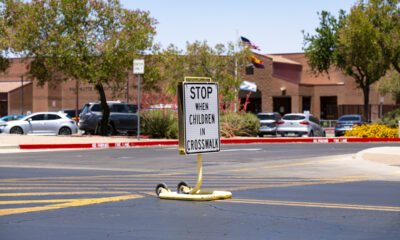border
After Deporting 3 U.S. Citizen Children, Trump’s Border Czar Blames Parents for the Crisis

In a recent press conference, White House border czar Tom Homan addressed the controversial deportation of U.S. citizen children alongside their undocumented mothers. This action, involving three children under the age of ten, took place over the weekend when they were sent back to Honduras after the mothers checked in with U.S. Immigration and Customs Enforcement (ICE) as part of the Intensive Supervision Appearance Program.
Homan stated, “If you enter this country illegally, it’s a crime.” He emphasized that knowing one’s illegal status implicates both the individual and their family in potential consequences. Critics, however, argue that children, particularly those with medical needs, should not be subjected to such measures.
Among the impacted families is Gracie Willis, whose 4-year-old son with Stage 4 cancer was deported without access to necessary medication. Attorneys representing these families contend that the mothers were denied proper legal counsel, leading to wrongful deportations devoid of due process.
U.S. District Judge Terry Doughty raised concerns about these actions in court, notably regarding the deportation of a 2-year-old U.S. citizen, which occurred against her father’s wishes. Doughty scheduled a hearing for May 16, citing worries about the lack of meaningful legal protections for the children involved.
Legal representatives emphasize the emotional toll on families. Willis described the recent events as “horrifying and baffling,” highlighting that these mothers had no chance to discuss critical decisions regarding their children’s welfare with their partners.
In his defense, Homan insisted that the deportations were made at the request of the mothers, asserting that the goal was to keep families together. “We don’t deport U.S. citizens,” he stated, suggesting that the parents made informed decisions.
As President Trump approaches the 100th day of his second term, immigration remains a focal point of his administration. Two executive orders are set to be signed, one targeting border security and another aiming to identify sanctuary cities that do not comply with federal immigration laws.
The situation escalated with the recent arrest of Judge Hannah Dugan in Wisconsin, accused of obstructing immigration enforcement. This event highlights the rising tensions between the Trump administration and the judiciary, as Attorney General Pam Bondi stated their commitment to prosecuting officials who interfere with immigration laws.
Amid escalating legal and political stakes, the fate of these families continues to draw public scrutiny, raising profound questions about immigration policy and human rights.


















